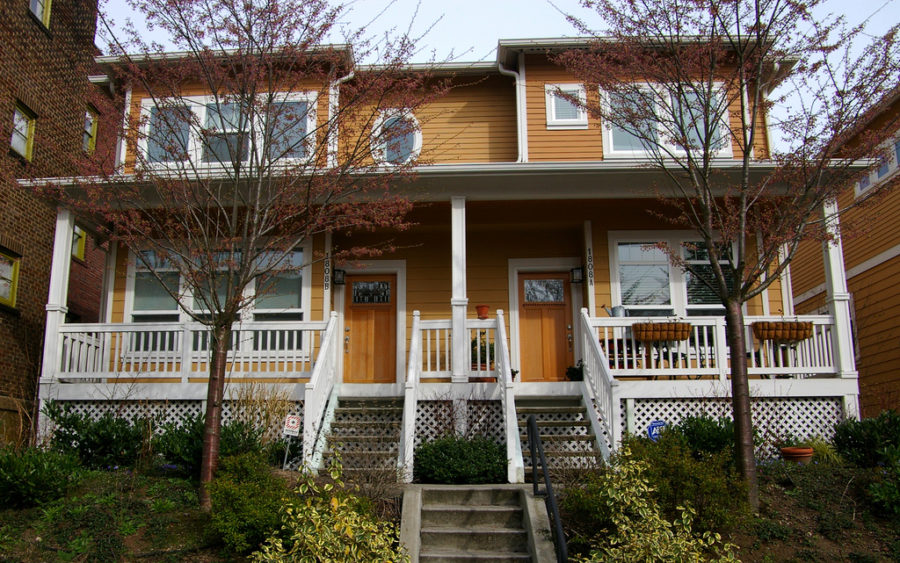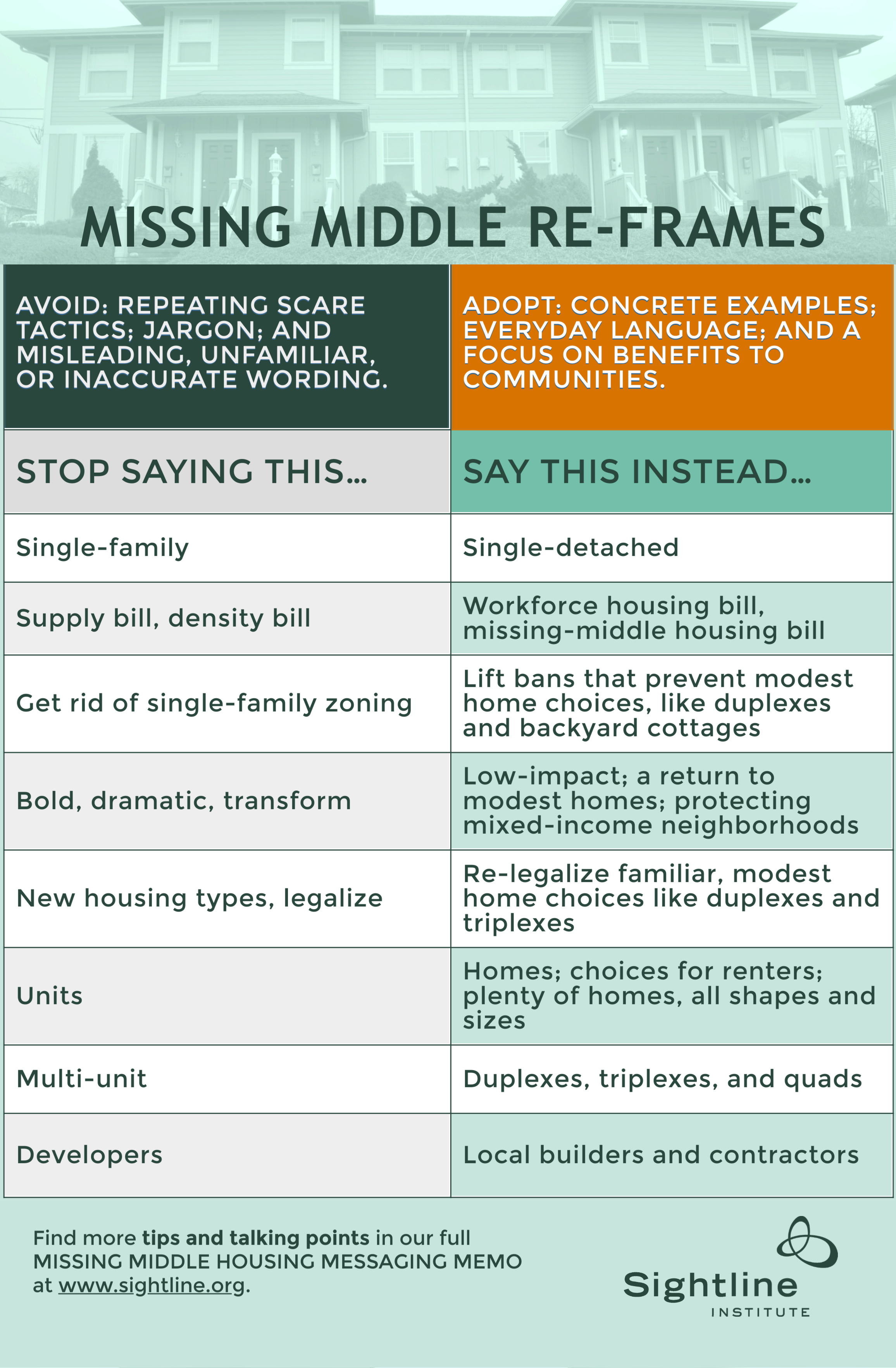Since June, when wide, bipartisan majorities of Oregon’s legislature re-legalized duplexes, triplexes and fourplexes statewide, Sightline’s housing affordability and green urbanism team has fielded one question over and over: How did this happen?
It took years of careful work by a robust coalition, including one of the most powerful politicians in the state. Backers ranged from Habitat for Humanity to AARP of Oregon to Lane County NAACP to Sunrise PDX to Portland Public Schools, all powerful voices who made the case that middle housing makes it easier to age in place, starts to undo some of the ways racism has undermined housing affordability for all, is an essential way to fight climate change, and helps reduce school segregation. (Last month, The Century Foundation published Richard Kahlenberg’s useful overview of political strategy behind zoning reforms in Minneapolis and Oregon.)
But an aspect that the two of us worked on may also be useful to people seeking to replicate state-level affordability solutions: How to talk about missing-middle homes.
Just after the bill was introduced in January, Sightline circulated this memo to fellow supporters. It’s based on our own message testing and on best practices we’ve gathered together from leaders in Oregon and across the country. It includes words and phrases to use and avoid, and pivots from common opposition arguments.
Some top-level takeaways were previously shared, but Sightline is making the full memo available. Check out a downloadable version here.
Emphasize what’s to gain, not what fearmongers will claim is lost
One of the most important things reformers in Oregon did: Avoided talking about single-detached zoning (the upzoning boogeyman entrenched opponents flaunted). Instead, the emphasis was on the things this bill legalized. (Or, if you want to be historically precise about it, re-legalized.)
Almost no one thinks “single-family zoning” is outrageous, despite all the ways it harms us: It limits housing choices, elevates prices, segregates cities.
But when you tell people that duplexes are illegal to build in most of the United States and Canada, most people do actually find that outrageous. You’re saying the same thing, but the emphasis is on what we stand to gain.
Reformers in Minneapolis, California and Seattle also focused on gains. Despite the national headlines after the Minneapolis council voted 12-1 to “eliminate single-family zoning,” advocates had spent a year talking about legalizing fourplexes. (Anti-housing activists chipped that proposal down to three units near the end of the process.)
In California and Seattle, the story was similar: The focus was on legalizing up to two secondary cottages per lot, not on doing away with single-detached zoning.
State legislatures are good places to pursue these reforms
Missing-middle homes are a key ingredient of affordable cities, and statewide action makes sense as a way to get them re-legalized. After all, a region’s roads, transit systems, and housing and job markets knit lives together across many cities and towns. Affordability problems know no municipal borders. To bring prices under control, and curb pollution and inequity resulting from long, costly commutes, cities need to band together—and leaders and advocates need consistent, strategic messages about the benefits of missing middle solutions.
Sightline’s team is always learning more about how to do this most effectively. We hope the things we’ve learned will be useful to you, too.
Here are re-frames and language dos and don’ts. Find the full memo, including more tips and talking points here.



Comments are closed.